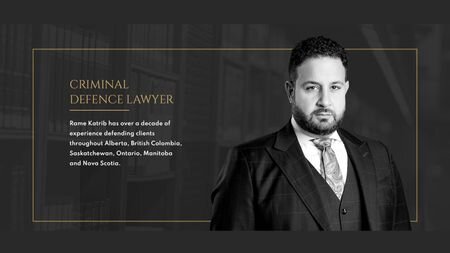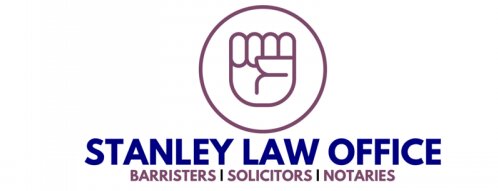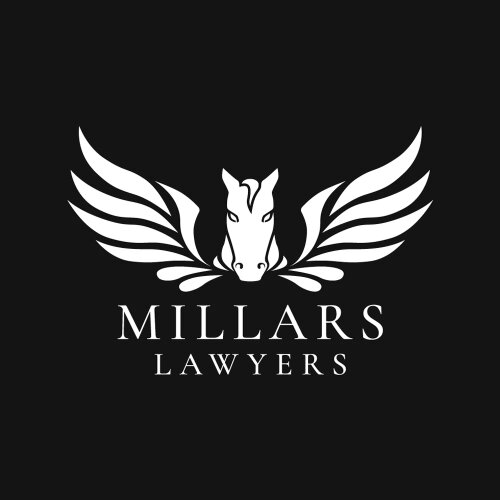Best White Collar Crime Lawyers in Calgary
Share your needs with us, get contacted by law firms.
Free. Takes 2 min.
List of the best lawyers in Calgary, Canada
About White Collar Crime Law in Calgary, Canada:
White collar crime refers to nonviolent crimes that are committed for financial gain by individuals or organizations. In Calgary, Canada, white collar crime encompasses a range of offenses such as fraud, embezzlement, insider trading, money laundering, and more. These crimes are typically committed by professionals in positions of trust.
Why You May Need a Lawyer:
If you are facing allegations of white collar crime in Calgary, it is crucial to seek legal representation. A lawyer with experience in white collar crime can help protect your rights, navigate the legal system, and work towards a successful outcome in your case.
Local Laws Overview:
In Calgary, white collar crime falls under the jurisdiction of both federal and provincial laws. The Criminal Code of Canada outlines offenses such as fraud and embezzlement, while the Alberta Securities Act covers crimes related to securities fraud. It is important to understand the specific laws that apply to your situation and seek legal advice accordingly.
Frequently Asked Questions:
1. What is the difference between white collar crime and other types of crime?
White collar crime typically involves financial deception or manipulation, while other crimes may involve violence or physical harm.
2. What are the potential penalties for white collar crime in Calgary?
Penalties for white collar crime in Calgary can include fines, restitution, probation, and in some cases, imprisonment.
3. How can I defend myself against allegations of white collar crime?
A lawyer experienced in white collar crime can help build a strong defense by investigating the allegations, gathering evidence, and presenting a compelling case in court.
4. Is it possible to negotiate a plea deal in a white collar crime case?
Yes, plea deals are common in white collar crime cases and can result in reduced charges or penalties.
5. What should I do if I suspect white collar crime is occurring in my workplace?
You should report your suspicions to the appropriate authorities, such as law enforcement or regulatory agencies.
6. How can I prevent white collar crime in my business?
Implementing strong internal controls, conducting regular audits, and providing employee training on ethical conduct can help prevent white collar crime in your business.
7. Can I be held personally liable for white collar crime committed by my employees?
In some cases, individuals in supervisory or management roles may be held liable for the actions of their employees if they were aware of or complicit in the criminal activity.
8. How long does a white collar crime investigation typically last?
The length of an investigation can vary depending on the complexity of the case, but investigations of white collar crime can often take months or even years to complete.
9. What are my rights if I am being investigated for white collar crime?
You have the right to remain silent and the right to legal representation. It is important to exercise these rights and consult with a lawyer as soon as possible.
10. How can I find a lawyer who specializes in white collar crime in Calgary?
You can search online for lawyers who specialize in white collar crime, ask for referrals from trusted sources, or contact the Law Society of Alberta for a list of qualified attorneys.
Additional Resources:
For more information on white collar crime in Calgary, you can visit the Alberta Securities Commission website or contact the Calgary Police Service Fraud Team.
Next Steps:
If you are in need of legal assistance for a white collar crime matter in Calgary, it is important to contact a lawyer immediately. They can provide guidance on your rights, options, and the best course of action to take in your situation.
Lawzana helps you find the best lawyers and law firms in Calgary through a curated and pre-screened list of qualified legal professionals. Our platform offers rankings and detailed profiles of attorneys and law firms, allowing you to compare based on practice areas, including White Collar Crime, experience, and client feedback.
Each profile includes a description of the firm's areas of practice, client reviews, team members and partners, year of establishment, spoken languages, office locations, contact information, social media presence, and any published articles or resources. Most firms on our platform speak English and are experienced in both local and international legal matters.
Get a quote from top-rated law firms in Calgary, Canada — quickly, securely, and without unnecessary hassle.
Disclaimer:
The information provided on this page is for general informational purposes only and does not constitute legal advice. While we strive to ensure the accuracy and relevance of the content, legal information may change over time, and interpretations of the law can vary. You should always consult with a qualified legal professional for advice specific to your situation.
We disclaim all liability for actions taken or not taken based on the content of this page. If you believe any information is incorrect or outdated, please contact us, and we will review and update it where appropriate.













